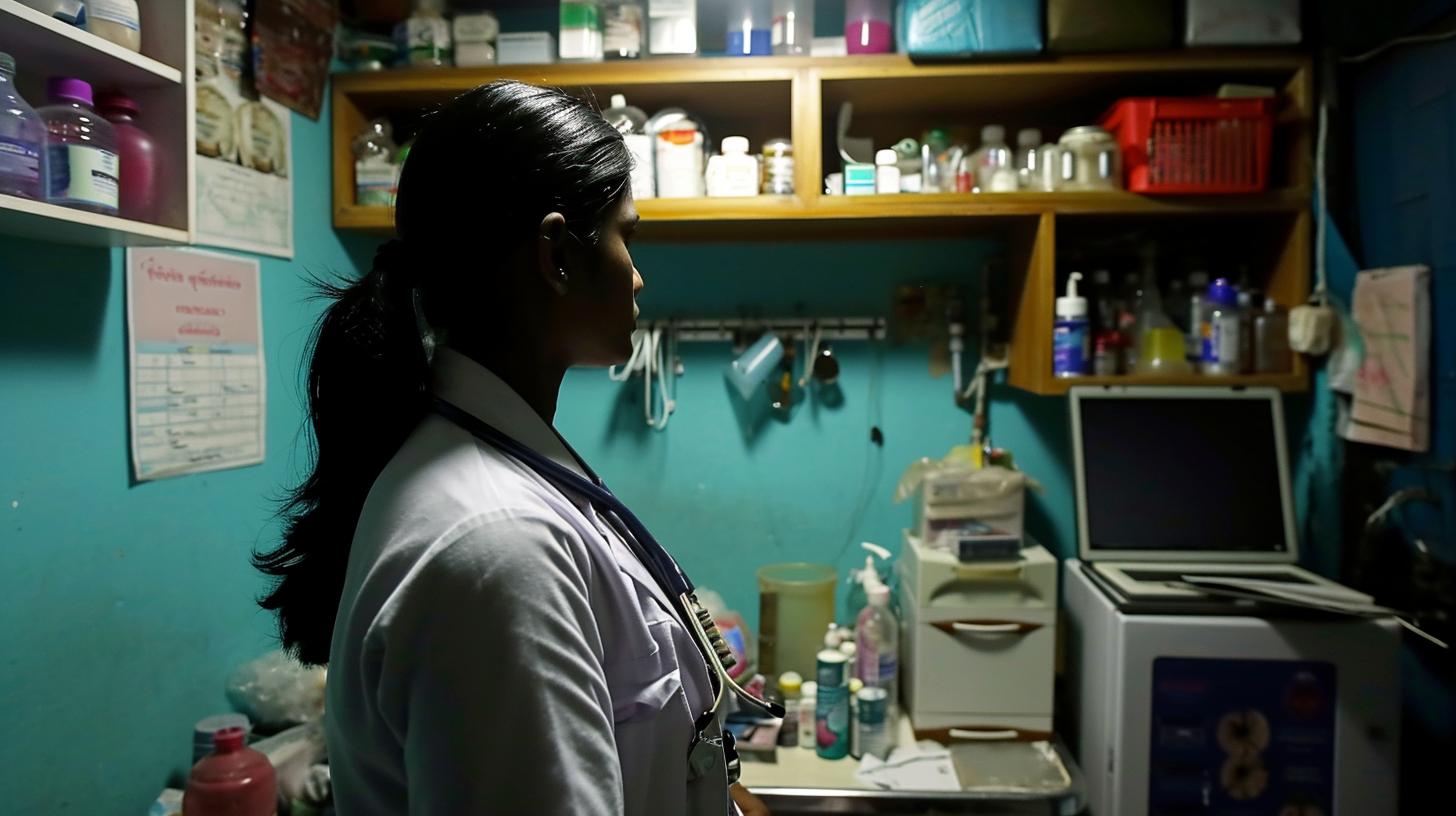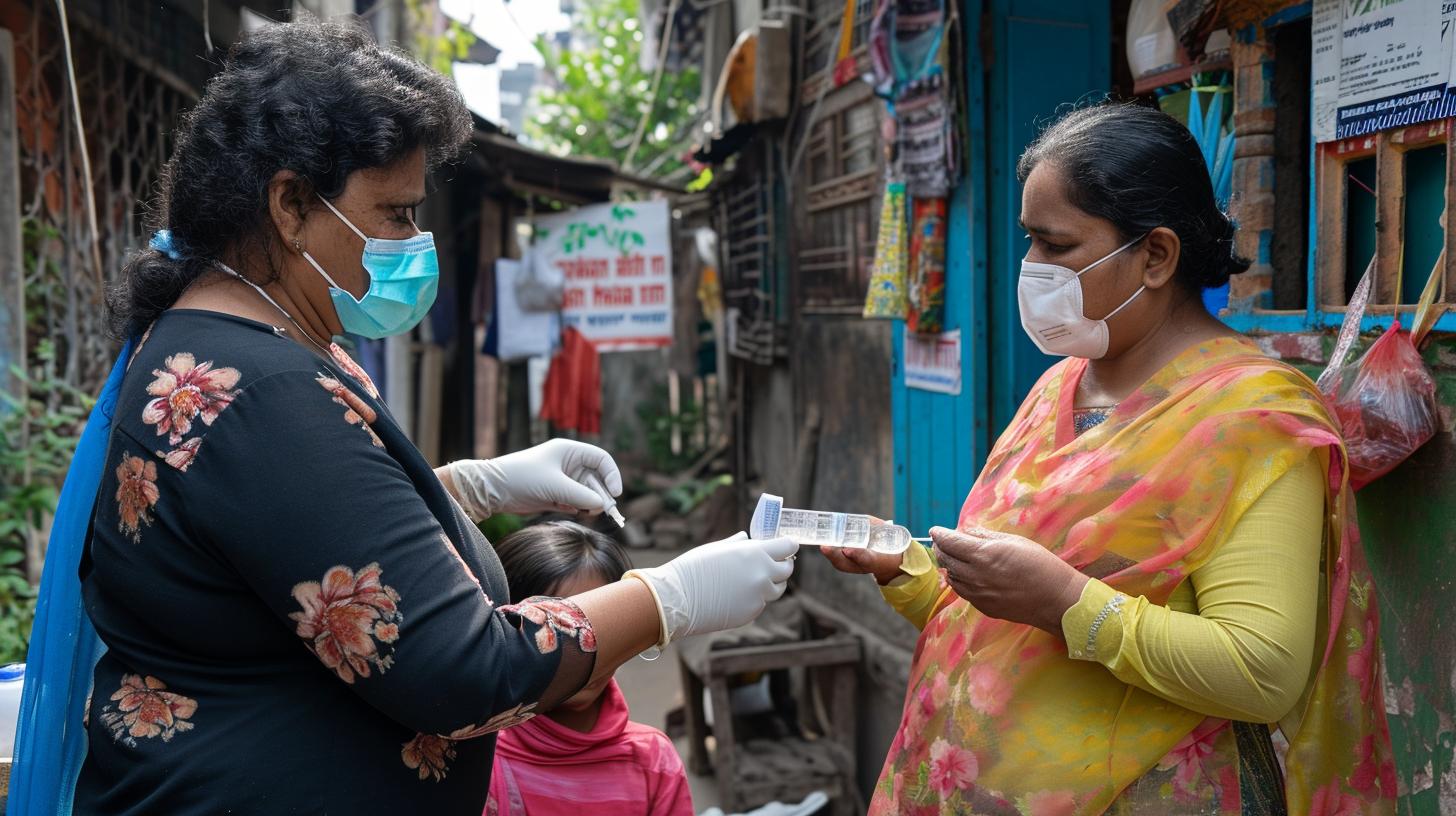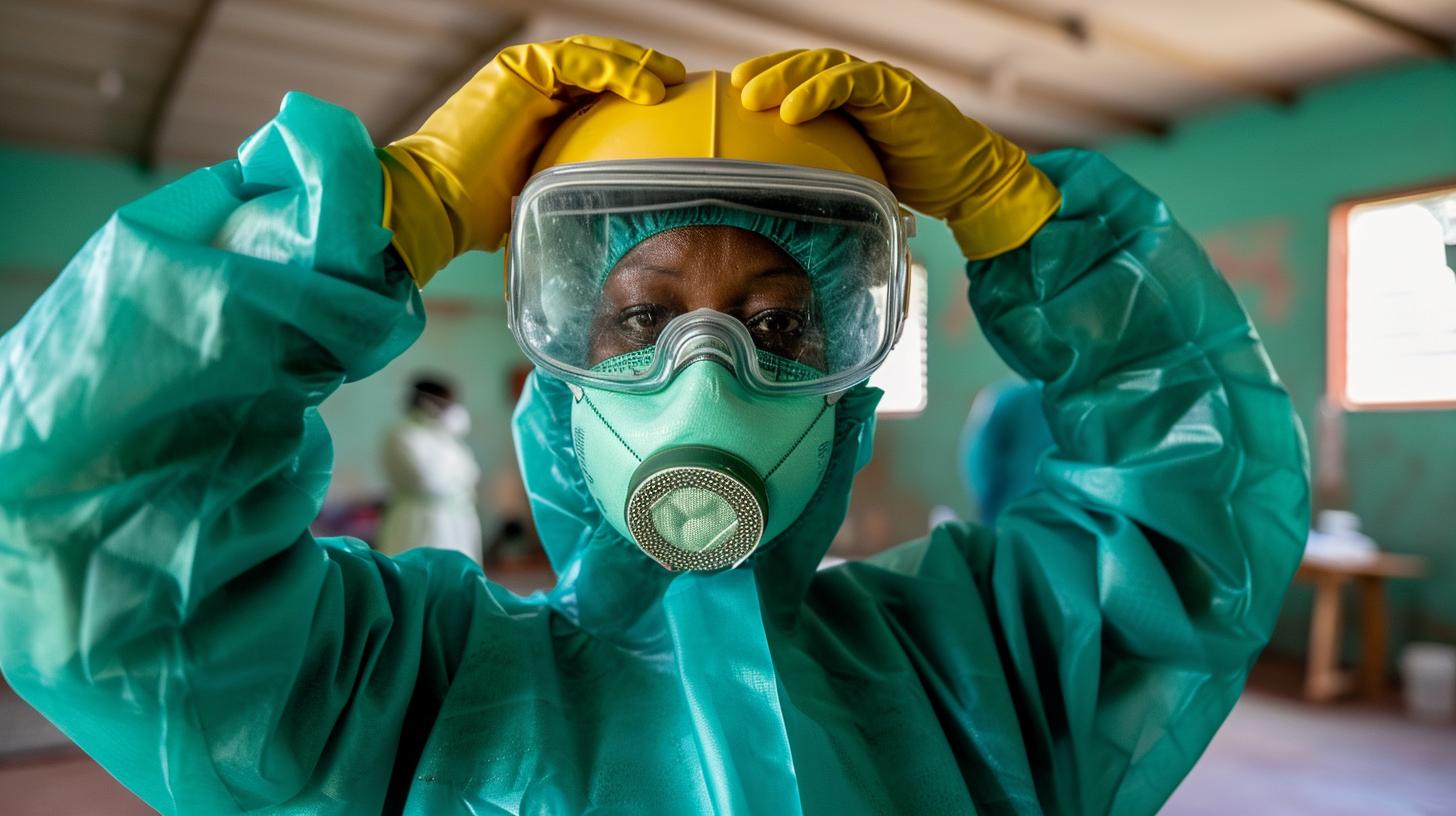
Are you interested in a career in public health and safety? The Health Sanitary Inspector ITI program may be the perfect fit for you.
This comprehensive guide will provide you with valuable information about the role and responsibilities of a Health Sanitary Inspector, job opportunities, career growth, curriculum and training, as well as the skills and qualities needed to succeed in this field. Additionally, we will explore the importance of Health Sanitary Inspectors in public health and safety, real-life success stories, and how to enroll in a Health Sanitary Inspector ITI program to kickstart your career.
The role of a Health Sanitary Inspector is crucial in maintaining public health standards and ensuring the safety of communities. From inspecting food establishments and water sources to managing waste disposal and promoting hygiene practices, these professionals play a vital role in preventing the spread of diseases and maintaining clean, healthy environments. In this section, we will delve into the core responsibilities of a Health Sanitary Inspector and the impact they have on public health.
If you’re considering a career as a Health Sanitary Inspector, it’s essential to understand the job opportunities available in this field as well as the potential for career growth. Whether you’re interested in working for governmental health departments or pursuing opportunities in private sectors such as hospitality or healthcare facilities, there are various pathways for career advancement as a Health Sanitary Inspector.
We will discuss these opportunities in detail to help you make informed decisions about your future career path.
The Role and Responsibilities of a Health Sanitary Inspector
- Conducting Inspections: One of the primary responsibilities of a Health Sanitary Inspector is to conduct regular inspections of public facilities, food establishments, water sources, and residential areas to ensure compliance with health and sanitation standards. This includes checking for proper waste disposal, hygienic conditions in food preparation areas, and overall cleanliness.
- Enforcing Regulations: Health Sanitary Inspectors are responsible for enforcing local, state, and national regulations related to public health and sanitation. This may involve issuing citations or fines for violations, as well as working with businesses and property owners to implement corrective measures.
- Investigating Health Hazards: In the event of public health hazards or outbreaks of infectious diseases, Health Sanitary Inspectors are tasked with investigating the source of the problem and taking necessary actions to prevent further spread. This may involve collaborating with other governmental agencies and healthcare professionals to protect the community from potential health risks.
In addition to these core responsibilities, Health Sanitary Inspectors also play a crucial role in educating the public about proper hygiene practices and promoting awareness of health-related issues. Their work is essential in preserving public health and safety.
Job Opportunities and Career Growth for Health Sanitary Inspectors
Health Sanitary Inspectors play a crucial role in maintaining public health and safety, making them essential members of the workforce. As a Health Sanitary Inspector, you will have various job opportunities and potential for career growth in both the public and private sectors.
One of the primary responsibilities of a Health Sanitary Inspector is to ensure compliance with health and safety regulations in establishments such as restaurants, food processing plants, hospitals, schools, and other public facilities. This opens up job opportunities in local government health departments, environmental agencies, food inspection departments, and occupational health and safety organizations.
In addition to regulatory compliance roles, Health Sanitary Inspectors can also pursue careers in community health education, sanitation consulting, waste management, and environmental protection agencies. With experience and further education in specialized areas such as industrial hygiene or environmental health sciences, Health Sanitary Inspectors can advance into managerial roles or become consultants for government agencies or private organizations.
The demand for qualified Health Sanitary Inspectors is expected to grow due to increasing public awareness of health and safety issues. According to the Bureau of Labor Statistics (BLS), employment of occupational health and safety specialists is projected to grow 4% from 2019 to 2029. This indicates favorable job prospects for individuals pursuing a career as a Health Sanitary Inspector.
The need for ensuring safe working conditions and maintaining public health standards will continue to drive the demand for these professionals in various industries. With the right qualifications and experience, individuals who complete a Health Sanitary Inspector ITI program can look forward to a rewarding career with opportunities for career growth and advancement.
Curriculum and Training in the Health Sanitary Inspector ITI Program
The Health Sanitary Inspector ITI Program provides students with the necessary knowledge and skills to excel in the field of public health and safety. The curriculum is designed to cover a wide range of topics related to sanitation, hygiene, and infectious disease control. Students will also receive training in environmental health, food safety, and occupational health hazards.
Curriculum Overview
The curriculum of the Health Sanitary Inspector ITI Program typically includes coursework in microbiology, epidemiology, waste management, water sanitation, and vector control. Students will also learn about the laws and regulations governing public health and safety standards. Additionally, practical training is provided to give students hands-on experience in conducting inspections, investigating complaints, and enforcing health regulations.
Training Opportunities
In addition to classroom instruction, students enrolled in the program will have the opportunity to participate in internships or externships with local public health agencies or environmental health departments. This real-world training allows students to apply their knowledge in a professional setting under the guidance of experienced health sanitary inspectors. It also provides valuable networking opportunities that can lead to job placement upon graduation.
Certification and Licensure
Upon completion of the Health Sanitary Inspector ITI Program, graduates may be eligible to sit for a certification exam administered by a professional organization such as the National Environmental Health Association (NEHA). Obtaining certification demonstrates a commitment to professional development and can enhance job prospects. Some states may also require licensure for individuals working as health sanitary inspectors, so it’s important for graduates to research the specific requirements in their area.
Skills and Qualities Needed to Succeed as a Health Sanitary Inspector
The role of a Health Sanitary Inspector requires a specific set of skills and qualities in order to succeed in the field. These individuals are responsible for ensuring public health and safety through routine inspections, enforcement of sanitary regulations, and education of communities on best practices for maintaining cleanliness and hygiene.

One of the most important skills needed to excel as a Health Sanitary Inspector is attention to detail. Inspectors must be meticulous in their observations and documentation to identify potential health hazards and ensure compliance with regulations.
In addition to attention to detail, effective communication skills are essential for Health Sanitary Inspectors. They must be able to clearly convey information, both verbally and in writing, to individuals and businesses regarding sanitation standards and necessary improvements. This includes providing guidance on proper waste disposal, food handling procedures, and overall facility cleanliness. Being able to communicate in a professional yet approachable manner is crucial when addressing potential violations or concerns.
Furthermore, a strong understanding of public health principles and regulations is necessary for Health Sanitary Inspectors. This includes knowledge of local, state, and federal laws related to sanitation and health codes. Inspectors must stay up-to-date on any regulatory changes or new developments within the field that could impact their work. Additionally, the ability to adapt to new technologies for data collection and reporting is becoming increasingly important for Health Sanitary Inspectors as the industry evolves.
| Skills Required | Description |
|---|---|
| Attention to Detail | Meticulous in observing potential health hazards |
| Effective Communication | Able to convey information clearly both verbally and in writing |
| Regulatory Knowledge | Familiarity with public health laws and codes |
Mastering these skills will not only help aspiring Health Sanitary Inspectors succeed but also greatly benefit the communities they serve by ensuring public health standards are maintained at all times.
Importance of Health Sanitary Inspectors in Public Health and Safety
Health Sanitary Inspectors play a vital role in ensuring public health and safety by inspecting and monitoring various facilities to prevent the spread of diseases, maintain cleanliness, and enforce health regulations. Their work is essential in preventing the outbreak of communicable diseases and promoting a healthy environment for communities.
Preventing the Spread of Diseases
One of the key responsibilities of Health Sanitary Inspectors is to conduct regular inspections of public spaces, food establishments, water sources, and residential areas to ensure that they meet health and sanitation standards. By identifying potential health hazards and enforcing regulations, inspectors play a crucial role in preventing the spread of diseases such as foodborne illnesses, water-borne diseases, and other communicable diseases.

Enforcing Health Regulations
Health Sanitary Inspectors are responsible for enforcing local, state, and federal health regulations to ensure that businesses and individuals comply with sanitary standards. This includes monitoring food handling practices in restaurants, inspecting public swimming pools for cleanliness and safety, and ensuring proper waste disposal methods are followed. By enforcing these regulations, inspectors contribute to maintaining a safe environment for the community.
Promoting Community Health Education
In addition to their inspection duties, Health Sanitary Inspectors also play a pivotal role in promoting community health education. They often provide guidance on best practices for maintaining clean and hygienic environments at homes, workplaces, and public spaces. By educating the public about disease prevention and sanitation principles, inspectors contribute to raising awareness about health issues and empowering individuals to make informed decisions for their well-being.
Overall, the work of Health Sanitary Inspectors is instrumental in safeguarding public health and safety through their efforts to identify potential health risks, enforce regulations, and educate communities on healthy living practices. Their dedication contributes significantly to creating a safer environment for all members of society.
Real-Life Success Stories of Health Sanitary Inspectors
Health Sanitary Inspectors play a crucial role in ensuring public health and safety by enforcing sanitation regulations and conducting inspections in various establishments. Their work often goes unnoticed, but their contributions are essential in preventing the spread of diseases and maintaining cleanliness in communities. Here are some real-life success stories that showcase the impact of Health Sanitary Inspectors:
- John Smith, a Health Sanitary Inspector ITI graduate, took on the challenge of improving sanitation conditions in a low-income neighborhood. Through his diligence and determination, he implemented educational programs on proper waste disposal and personal hygiene. As a result, there was a significant decrease in the spread of infectious diseases within the community.
- Maria Garcia, another Health Sanitary Inspector, played a crucial role during a public health crisis in her area. She quickly identified sources of contamination in local water sources, leading to prompt action to prevent an outbreak of waterborne illnesses. Her swift response saved countless lives and raised awareness about the importance of regular inspections.
- Michael Johnson, after completing his training as a Health Sanitary Inspector ITI, successfully lobbied for improvements in food safety standards at local restaurants and food processing facilities. His efforts led to stricter regulations that significantly reduced cases of food-related illness in the region.
These inspiring stories illustrate how Health Sanitary Inspectors make a tangible difference in public health and safety. Their commitment to upholding sanitation standards and their ability to identify potential health hazards directly contribute to creating healthier environments for communities.
Furthermore, these success stories highlight the diverse opportunities available to Health Sanitary Inspectors to positively impact society. From addressing sanitation issues within neighborhoods to preventing large-scale health crises, these professionals play a vital role in safeguarding public well-being.
Ultimately, these real-life examples underscore the essential nature of the work performed by Health Sanitary Inspectors. Their dedication to maintaining sanitary conditions is not only impactful but also serves as inspiration for those considering pursuing this honorable career path.
How to Enroll in a Health Sanitary Inspector ITI Program and Start Your Career
In conclusion, the Health Sanitary Inspector ITI program is an excellent choice for those who are passionate about public health and safety. The role and responsibilities of a health sanitary inspector are varied and important, encompassing everything from inspecting facilities to educating the public on how to maintain clean and healthy environments.
With job opportunities available in both the public and private sectors, as well as ample room for career growth, this profession offers a promising future for those who pursue it.
The curriculum and training for the Health Sanitary Inspector ITI program provide students with the necessary knowledge and skills to succeed in this field. From learning about sanitation practices to understanding public health policies, students are equipped with valuable tools that will serve them well in their careers. Additionally, the importance of health sanitary inspectors in maintaining public health and safety cannot be overstated, making their role an essential one in any community.
For those interested in enrolling in a Health Sanitary Inspector ITI program and starting their career, there are many options available at vocational schools and technical institutes. By acquiring the necessary skills and qualities needed for success in this profession, individuals can make a real difference in their communities by ensuring that proper sanitation standards are met. As showcased by real-life success stories of health sanitary inspectors, this career path can be incredibly rewarding both personally and professionally.






